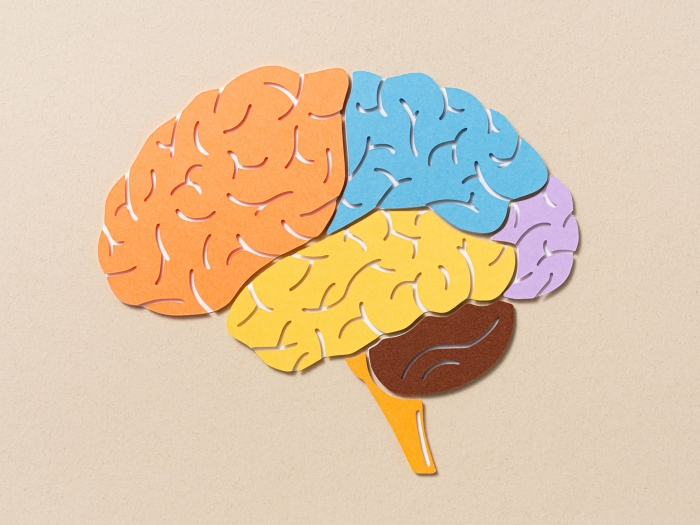A study stressed the importance of early diagnosis and sustained control of high blood pressure for Black and Hispanic patients, who have a higher risk of stroke
5:00 AM
Author |

High blood pressure is known to increase a person’s chances of having a stroke.
But a study led by Michigan Medicine narrows in on the cumulative effects of years of high systolic blood pressure — the top number on the blood pressure reading and how hard the heart pumps blood to the arteries — finding that a higher average reading during adulthood is linked with a greater risk for the two most common types of stroke.
The study, published in JAMA Network Open, analyzed the average systolic blood pressure years ahead of the first stroke for more than 40,000 people who were 18 years or older with no history of stroke.
Researchers covered three types of stroke: ischemic, a clot that cuts blood supply to the brain and the cause of over 85% of all strokes; intracerebral hemorrhage, a bleed within the brain; and subarachnoid hemorrhage, bleeding between the brain and the tissues that cover it.
They found that having a mean systolic blood pressure that is 10-mm Hg higher than average was associated with a 20% higher risk of overall stroke and ischemic stroke, as well as a 31% greater risk of intracerebral hemorrhage.
“Our results suggest that early diagnosis and sustained control of high blood pressure over the lifespan are critical to preventing stroke, ischemic stroke and intracerebral hemorrhage, especially in Black and Hispanic patients who are more likely to have uncontrolled hypertension than white patients,” said senior author Deborah A. Levine, M.D., M.P.H., professor of internal medicine and neurology at University of Michigan Medical School.
Black patients had a 20% higher risk of ischemic stroke and a 67% higher risk of intracerebral hemorrhage than white patients.
Hispanic patients had a 281% higher risk of subarachnoid hemorrhage, but not any other stroke type, compared to white patients.
“Health care systems and providers must educate and urge their patients to do home blood pressure monitoring, and insurers must pay for home blood pressure monitors to optimize people’s blood pressure and reduce their chances of having a stroke.”Deborah A. Levine, M.D., M.P.H.
While Black and Hispanic patients had a higher risk of stroke, researchers found little evidence to suggest that race and ethnicity affected the association between cumulative systolic blood pressure and the type of stroke that affected any patient.
“Examining racial inequities advances our understanding of the social, economic and political structures that affect health behaviors and risk for stroke among racial and ethnic minority groups,” said Kimson E. Johnson, Ph.D., M.A., M.S.W., first author and postdoctoral research fellow at University of Michigan.
SEE ALSO: Timely response leads to complete recovery for young stroke survivor
While systolic blood pressure is a modifiable target for preventing stroke and other cardiovascular diseases, a national study conducted in 2020 found that blood pressure control in the United States worsened from 2013 to 2018, especially for Black and Hispanic adults.
Self-monitoring of blood pressure improves blood pressure diagnosis and control and is accurate and cost effective, but it remains an underused tool, Levine says.
“Two major barriers to self-monitoring of blood pressure are lack of patient education and insurance not covering the home blood pressure monitors, which cost $50 or more,” she said.
“Health care systems and providers must educate and urge their patients to do home blood pressure monitoring, and insurers must pay for home blood pressure monitors to optimize people’s blood pressure and reduce their chances of having a stroke.”
Additional authors: Hanyu Li, M.S., Mellanie V. Springer, M.D., M.S., Andrzej T. Galecki, M.D., Ph.D., Rachael T. Whitney, Ph.D., Rodney A. Hayward, M.D., all of University of Michigan, Min Zhang, Ph.D., of Tsinghua University, Rebecca F. Gottesman, M.D., Ph.D., of the National Institute of Neurological Disorders and Stroke, Stephen Sidney, M.D., M.P.H., of Kaiser Permanente Northern California, Mitchell S. V. Elkind, M.D., M.S., of Columbia University, W. T. Longstreth Jr, M.D., M.P.H., Susan R. Heckbert, M.D., Ph.D., both of University of Washington, Yariv Gerber, Ph.D., of Tel Aviv University and Kevin J. Sullivan, Ph.D., M.P.H., of University of Mississippi Medical Center.
Funding: This study was supported by grant R01 NS102715 from the National Institute of Neurological Disorders and Stroke of the National Institutes of Health and the U.S. Department of Health and Human Services.
Paper cited: “Cumulative Systolic Blood Pressure and Incident Stroke Type Variation by Race and Ethnicity,” JAMA Network Open. DOI: 10.1001/jamanetworkopen.2024.8502
Sign up for Health Lab newsletters today. Get medical tips from top experts and learn about new scientific discoveries every week by subscribing to Health Lab’s two newsletters, Health & Wellness and Research & Innovation.
Sign up for the Health Lab Podcast: Add us on Spotify, Apple Podcasts or wherever you get you listen to your favorite shows.

Explore a variety of health care news & stories by visiting the Health Lab home page for more articles.

Department of Communication at Michigan Medicine

Professor

Want top health & research news weekly? Sign up for Health Lab’s newsletters today!





